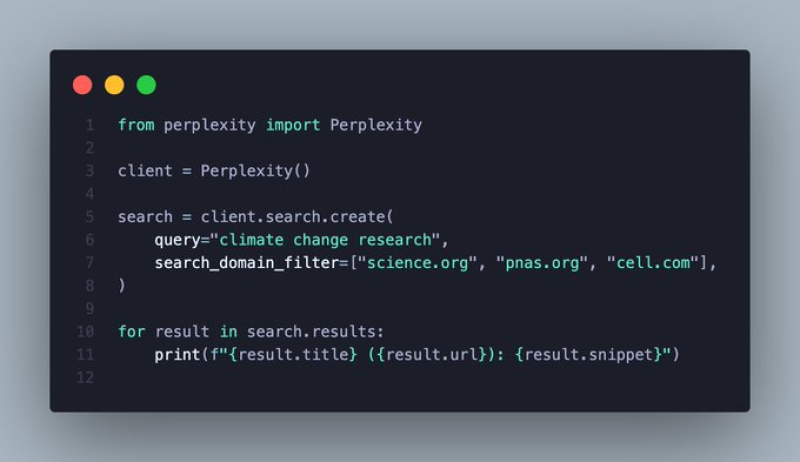Perplexity AI has rolled out domain filtering for its Search API, allowing developers to restrict queries to specific websites. The update, announced by Perplexity Developers on X, addresses a longstanding challenge in AI search: ensuring that results come from credible, verifiable sources rather than the open web.
For researchers, developers, and businesses that need accuracy over volume, this change matters. Instead of sifting through mixed-quality results, users can now point the API directly at authoritative domains and get cleaner, more trustworthy outputs.
How It Works
The feature is straightforward. Developers pass a list of domains to the API, and Perplexity returns results only from those sources. Here's the example from the announcement:

This query pulls climate research exclusively from peer-reviewed journals like Science, PNAS, and Cell. No blog posts, no forums, no unverified content. Just the sources you actually want.
Why It Matters
Most search APIs return results from across the internet, leaving it to users to judge credibility. That works for general queries, but it's a problem when accuracy is critical. Domain filtering flips the model: instead of filtering after the fact, you filter upfront.
The implications span multiple use cases. Academics can build tools that surface only peer-reviewed research. Developers can create AI assistants that cite directly from trusted outlets. Companies can streamline due diligence by narrowing searches to reliable sources. And for AI safety, excluding low-quality or misleading domains reduces the risk of misinformation slipping through.
By giving developers control over where information comes from, Perplexity is positioning itself as a platform for serious research, not just casual search.
What This Means Competitively
While Google and OpenAI focus on broad, general-purpose search, Perplexity is carving out a niche around precision and transparency. That matters in industries where wrong answers have consequences: finance, healthcare, legal work. Being able to say "this answer came from the New England Journal of Medicine" is a feature, not a footnote.
If enterprises start adopting this more widely, it could accelerate trust in AI-powered research tools. And if other platforms follow suit, domain filtering might become table stakes rather than a differentiator.
 Saad Ullah
Saad Ullah

 Saad Ullah
Saad Ullah


